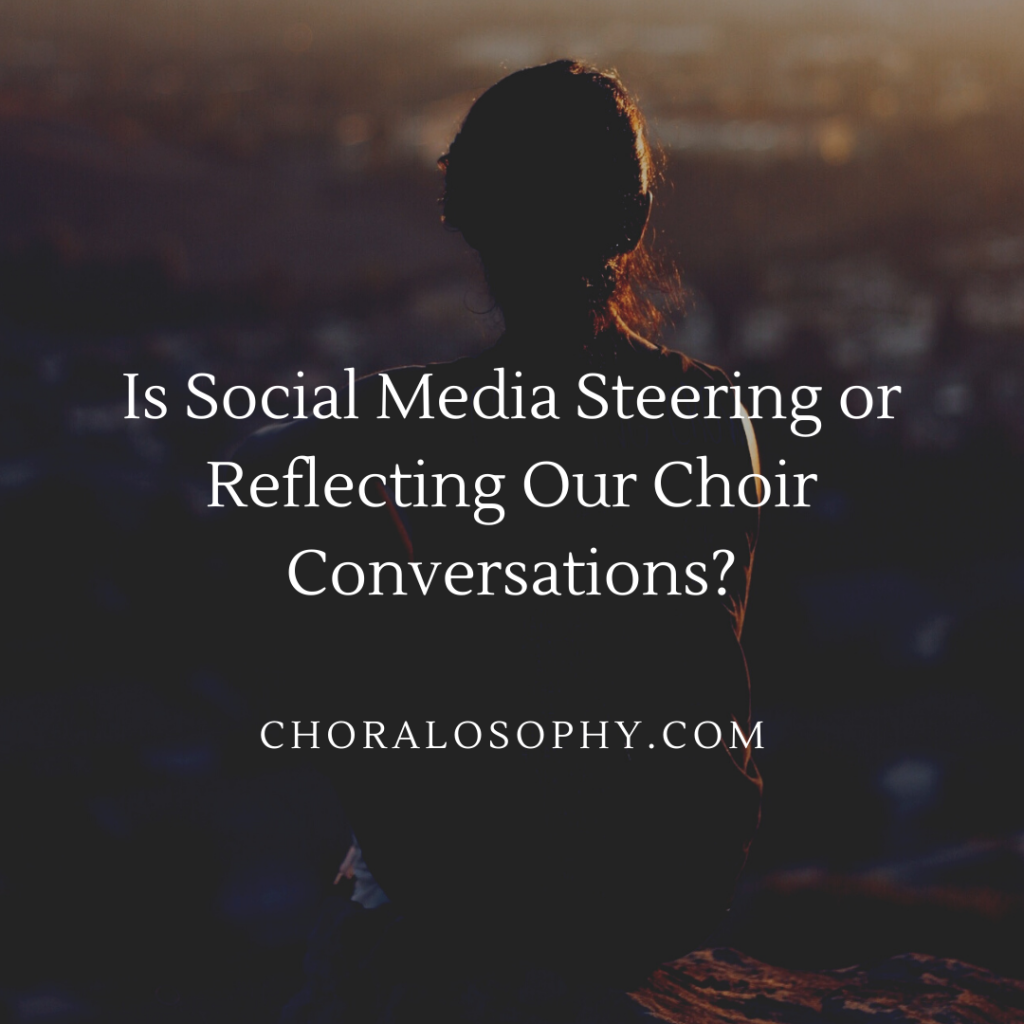I say it’s steering them. And I think that’s bad news. I believe that Social Media has a tremendous upside and potential for good. But only if it is reflective of the common humanity that we experience when we are in person. My concern is that this has been reversed. That, as we begin to return to in person activities, we will have centered our social media conversations as the “Conversation of Record” in our professional space. For healthy balance to be restored, we will need to get to work to reverse this.

See below a recent post on the Choralosophers FB Page.
Colleagues- we can’t let Facebook steer the ship in our profession. The errors of cognitive processing below are so much easier to avoid in person and/or if you know how to look for them. I’m working on a non-music specific Choralosophy Podcast blog and episode complete with expert guest Dr. Erec Smith on the subsequent changes to our communication habits (which spill into our classrooms as well as broader life…) This post is intended to provide some choir specific context.
Just a few of many Human Psychological processes that social media apps actively manipulate:
1. Availability heuristic- if you see the bad thing constantly on your phone, the brain places it in a category that is the same as “existential danger etc.” The thing may be very real and very bad, but it isn’t as prevalent as the phone makes it seem.
2. Anchoring bias- the first context you see something in, or the first fact you see is disproportionately hard to shake when new info arrives. (This is exploited when you rely on a small group of sources for info)
3. Audience effect- every interaction is perverted by an audience. Because the conversations are not between two people. They are between two people with an audience watching. Which means both participants in the conversation feel a very strong pull to perform. It becomes disproportionately important to us to appear to be a good member of our team. And often, the easiest way to do that is to be seen attacking the “other team.”Social media could be a powerful tool for good, and in many ways it is. But, the bad will outweigh the good if the next generation of kids is not taught how to spot and avoid these traps.



Leave a Reply
You must be logged in to post a comment.